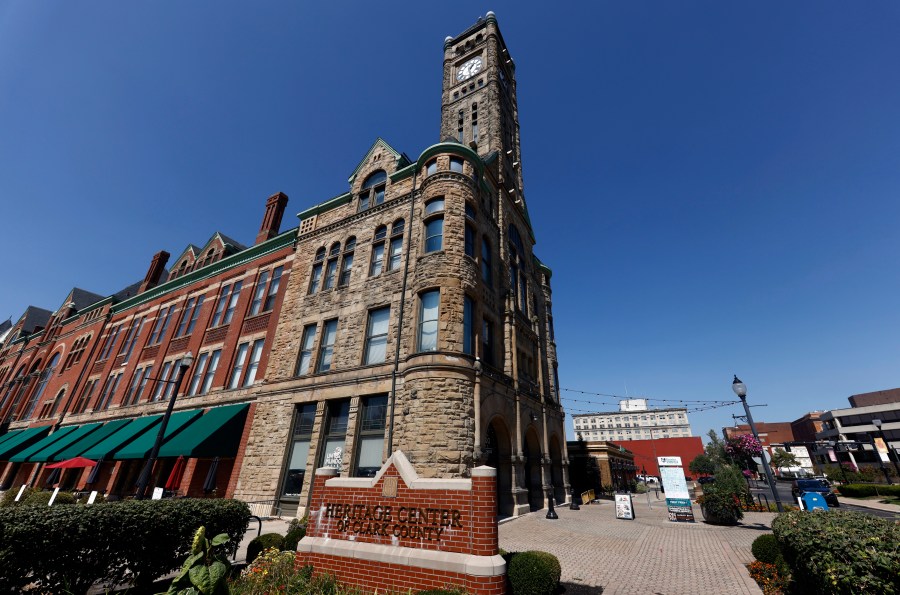(NewsNation) — Individuals who work with immigrants in several rural and small towns that have experienced influxes are offering solidarity to city leaders in Springfield, Ohio, saying initial hardships are par for the course of a longer, more prosperous road.
While Springfield has been thrust into the national spotlight, towns across America have dealt with influxes of immigrants for years, including people on Temporary Protected Status (TPS) like Haitians in the Ohio town.
“Whenever immigrants start coming into a community that has not experienced the inflows of immigrants, there’s always that concern with people wondering who they are,” Albert Mbanfu, the executive director of the International Center of Kentucky in Bowling Green, told NewsNation.
But Mbanfu, who helps immigrants adapt to their new lives in the rural Kentucky town, calls those initial challenges a small price to pay for future economic revitalization.
Springfield gained national attention after former President Donald Trump and his running mate, Sen. JD Vance, made unsubstantiated claims some Haitian immigrants were eating neighbors’ pets.
The attention has brought to light other hardships, including a strain on the town’s emergency services and housing resources.
Trump told NewsNation last week that he would revoke the TPS for Haitian immigrants in Springfield and ensure their return to Haiti.
TPS is a federal program that allows migrants from some countries — including Haiti and Ukraine — to legally live in the United States for a certain period when the conditions in their home country are unsafe.
“In my opinion, it’s not legal. It’s not legal for anybody to do,” Trump said.
Bowling Green is not unlike Springfield, Mbanfu said, except they had the chance to work through their difficulties outside of national scrutiny.
Springfield needs a fair shake too, the immigrant from Cameroon said.
Migrant influxes test resources in small towns
In Springfield, the number of affordable housing vouchers fell in the town as landlords moved to market-based rents that were rising in the face of higher demand after Haitian immigrants began arriving, reported Reuters. It was a blow to existing residents relying on them.
The town is facing other strains as well, including in schools and social services.
“It’s causing delays in public safety responses like police, fire or even emergency services. You go out to a site, and no one speaks English,” Bill Monaghan, a former journalist in Springfield, told NewsNation.
The pattern is similar in other small and rural towns where immigrant populations boomed.
Refugees and immigrants had been coming to Bowling Green for over four decades, and now 13% of the city’s population is foreign-born.
The influx of migrants stretched city resources and brought out fears in locals similar to residents in Springfield, Mbanfu said.

City leaders struggled to accommodate English learning support in schools and to provide immunizations and health services to people coming from war-torn countries, he added.
Adapting to the needs took time, and the city continues to work on it, he said.
“Some of the locals didn’t want immigrants. And while some of that still exists, there are more people that are comfortable with immigrants than those who aren’t than there were 10 or 15 years ago,” he said.
He called the growing pains “a down payment for a larger investment,” which he said has already begun to pay off in Bowling Green.
Several immigrants have opened businesses, including restaurants and trucking companies, that employ area residents and pump dollars back into Bowling Green.
Immigrants contributed “$564.3 million, or 9.5%, to the county’s GDP directly through their wages and spending, but also indirectly through additional economic activity created by their consumer behaviors,” a 2020 city report stated.
That’s the hindsight Mbanfu wants to offer the residents of Springfield who oppose Haitian immigrants.
“We faced the same situation in Bowling Green, but I don’t think the solution is to demonize and stigmatize them. It’s to figure out how to support them,” Mbanfu said.
Small Wisconsin town adjusting to Ukraine refugees
The foreign-born population of the small town of Stoughton, Wisconsin, grew to about 400 in the last two years, due in part to refugees from Ukraine who began settling in the community after Russia invaded the nation in 2022.
Kay Weeden co-founded the nonprofit Stoughton Resettlement to help settle refugees from Ukraine, Venezuela and Afghanistan two years ago. She said the town is still in the thick of adjustment due to shortages in housing, transportation and English language services.
“School has been very difficult because as a smaller school district, we just didn’t have the English language learning capacity, the resources, so that has definitely taxed the school district a bit,” she said. “There are jobs and everyone’s like, ‘We’re hiring. Oh, you don’t know English; okay, we’re not.’”
But Weeden says the act of helping immigrants is the most American thing you can do. It’s a message she wants to send Springfield’s leadership as well as Trump and Vance.
“It wasn’t so long ago when your entire family immigrated here to the United States. We are all immigrants, and all trying the best that we can, and these families will add and enrich your communities so much,” Weeden said.
“Just give them the opportunity to do that.”
The reception in Stoughton has largely been warm towards the Ukrainian immigrants who have come on Temporary Protected Status, much like the Haitians in Springfield, she said.
But that may have been because they look similar to 94% of white residents who live in the town of 12,000, she added.
“Had it been any other ethnicity that looked anything different than us, I mean, I’m just being blunt, it may have been different,” she said.
“That’s upsetting to think about because no one is more deserving of kindness than someone else,” she said. “They’ve all come from war, violence and other difficult circumstances.”





